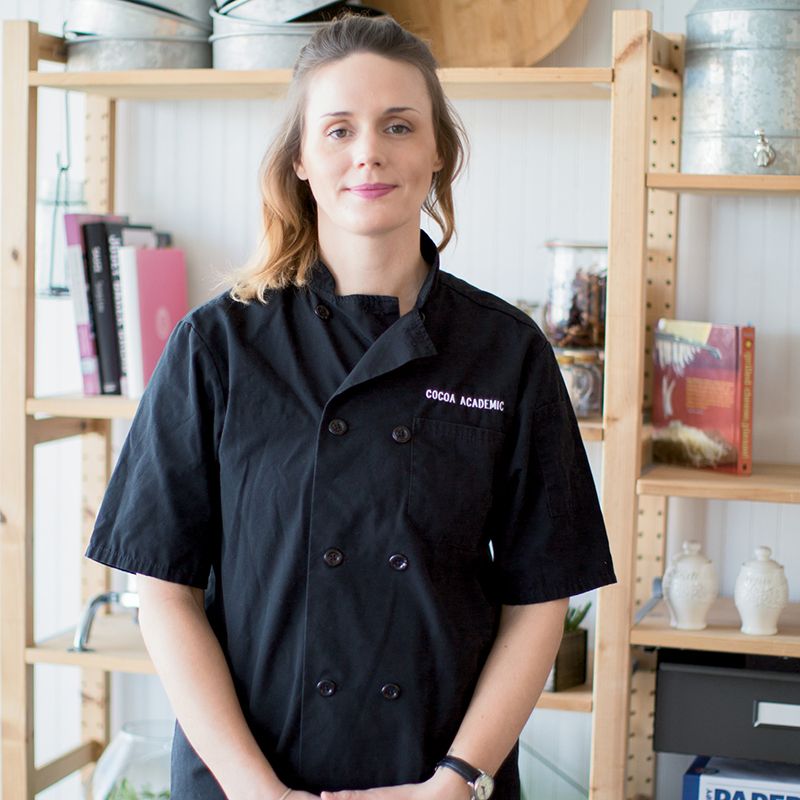Meet the chocolate master behind Cocoa Academic, the bean-to-bar company sweetening up the Lowcountry

CM: Where did you grow up?
BN: I’m originally from Edinburgh, Scotland. I spent most of my childhood there, but we moved to South Carolina when I was in high school to be closer to my mom’s extended family. She’s from Summerville, and my dad’s English. When my sister and I were growing up, we’d come over to visit family, so we were familiar with the area. After high school, I went back to Scotland to attend Edinburgh College.
CM: Is that when you got into chocolate making?
BN: Yes—I’ve been in the industry for going on 10 years now. I started with a yearlong apprenticeship at a French bakery, then I got my qualification in patisserie from Edinburgh College. After that, I worked for a few years with different chocolatiers in Edinburgh and London.
CM: How is the chocolate making different in America compared to abroad?
BN: Country to country, people like different things—Americans tend to prefer sweeter products. But bean-to-bar chocolate is trending all over the world now.
CM: Tell us a bit more about the bean-to-bar movement.
BN: Traditionally, there’s a chocolate maker and a chocolatier. Both jobs are art forms in and of themselves, but they differ in that a chocolate maker takes cocoa beans and turns them into chocolate, while the chocolatier buys high-quality chocolate and comes up with elaborate flavors and creations from it. Bean-to-bar chocolatiers go one step further, making the chocolate from scratch before transforming it.
CM: How did you get involved?
BN: I’d reached a point in my career where chocolatiering was fun and artistic, but I needed something that had a little more purpose to it. Then I learned the bean-to-bar technique in Britain, and I fell in love with chocolate again. I brought what I learned back to South Carolina.
CM: What might readers be surprised to learn about chocolate making?
BN: When you roast a cocoa bean, the shell falls away, leaving just the nib to make chocolate. Usually, the husks are discarded, but we found that they make a delicious tea when infused in hot water.
CM: How did Cocoa Academic start up?
BN: It began in 2016 as a way for me to make chocolate my way without having to fit inside a box. I wanted the business to be more than just candy bars—to also focus on sourcing sustainable beans and giving back. Last year, we began selling our cocoa husk tea, and for every bag we’ve sold, we’ve donated a meal to the Lowcountry Food Bank.
CM: How do you pick your flavors?
BN: I pull ideas from my surroundings and local ingredients, whatever’s in season in South Carolina. Our best seller, the Folly Beach bar, is salty and sweet, with sea salt and crushed chocolate cookies. The new spring flavors are bright and nature-inspired: grapefruit and mint, local bee pollen, pink salt and thyme, lavender-lemon, peppered orange.
CM: What’s on the calendar this month?
BN: For the first week of April, we’re hosting Easter egg decorating classes in our kitchen in North Charleston [find info at cocoaacademic.com], and we will be at the farmers markets on John’s Island and Folly Beach all season.